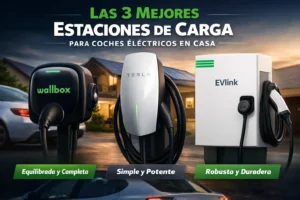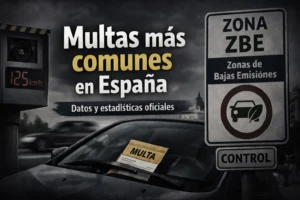
What Type of Car Trailer Do You Need? Complete Guide to Choosing the Right One
Choosing a car trailer may seem like a simple task, but there are multiple factors to consider to ensure it meets your needs and complies with current regulations. From load capacity to hitch types and braking systems, every detail influences the trailer's safety and performance.
In this complete guide, we will explain to you All the factors you should evaluate before buying a trailer, in addition to linking to our comparison of The 5 best car trailers if you are looking for specific recommendations.
Types of Trailers and Their Main Uses
Before choosing a trailer, it's essential to understand the different types available on the market and what they're used for.
General cargo trailers
- Ideal for transporting furniture, tools, debris and other bulky objects.
- They can be made of galvanized steel or aluminum.
- There are open and closed models for greater security.
Recommended for: Movers, transporters, small business owners.
Trailers for motorcycles and quads
- Designed with access ramps for easy loading.
- They have supports and tie-downs to secure the vehicle.
- There are models of open platform or with enclosure.
Recommended for: Motorcyclists and motorsports enthusiasts.
Trailers for cars and boats
- Used to transport small vehicles and boats.
- Equipped with reinforced axles and an independent braking system.
- They may require a B+E towing license depending on the total weight.
Recommended for: People who need to move cars or boats frequently.
Agricultural and livestock trailers
- Designed for transporting livestock, hay or farm tools.
- They usually have ventilation grilles and anti-slip protection.
Recommended for: Farmers and ranchers.
Key Factors for Choosing the Best Trailer
In addition to the type of trailer, there are several essential features you should consider.
2.1. Load capacity and GVW
The Maximum Authorized Mass (MAM) is the total weight that the trailer can support including the load.
Light: ≤ 750 kg (You do not need your own insurance or MOT.)
Heavy: > 750 kg (You need your own insurance and MOT.)
Advice: Consult your car's owner's manual to verify the maximum towing capacity allowed.
Hitch type and vehicle compatibility
The trailer hitch must be compatible with the vehicle. There are several types:
- Fixed ball: Economical, but cannot be disassembled.
- Detachable ball: Allows you to remove the hitch when not in use, avoiding fines.
- Retractable hitch: Hidden when not in use, ideal for modern cars.
Always check the hitch compatibility with your vehicle before installation.
Braking system
If the trailer weighs more than 750 kg, it must have a braking system.
- Trailers without brakes: Only suitable for light loads.
- Trailers with inertia brakes: Improves road safety.
If you carry heavy loads, opt for a braked trailer to avoid accidents.
Construction material
The material of the trailer influences its durability and weight:
- Galvanized steel: Stronger, but heavier.
- Aluminum: Lightweight and corrosion resistant, ideal for long journeys.
- Plywood: Economical, but less durable.
If the trailer will be exposed to the elements, it is advisable to choose one with anti-corrosion treatment.
Safety and stability on the road
To ensure safe trailer driving, keep these points in mind:
- Quality tires and with the appropriate pressure.
- Balanced load distribution to avoid swaying.
- Additional stabilizers for greater safety on long journeys.
Advice: If you are transporting fragile cargo, use tie-down straps to prevent sudden movements.
Regulations and approval
Depending on the weight of the trailer, different regulations may apply:
- Trailers over 750 kg require registration and own insurance.
- Some models require Periodic ITV to ensure its status.
- Rear lights and turn signals are mandatory on all trailers.
If you plan to travel abroad, check the regulations of your destination country.
Frequently Asked Questions about Trailers
Do I need a special license to drive with a trailer?
It depends on the total weight of the car + trailer:
- Less than 3,500 kg: A B license is sufficient.
- Between 3,500 kg and 4,250 kg: You need the B96 extension.
- Over 4,250 kg: You need the B+E license.
What is the best way to secure cargo on a trailer?
- Use tie-down straps resistant.
- Distributes weight evenly.
- Avoid carrying loose objects to prevent accidents.
How to keep a trailer in good condition?
- Check your tires and pressure regularly.
- Lubricate the hitches and brakes periodically.
- Store the trailer in a covered area to prevent corrosion.
Conclusion: Which trailer is best for you?
To choose the ideal trailer, answer these questions:
- What am I going to use it primarily for?
- How much weight do I need to carry?
- Does my car have the capacity to be towed?
- Do I need a model with brakes or a lightweight one without brakes?
If you still have questions, consult our Comparison of the 5 best car trailers to find the model that best suits your needs.
If you enjoyed this article, check out our guides on:
🔹 The best mobile phone holders for cars
🔹 The best parking sensors
🔹 The best tire inflators
Share:
Table of contents
More entries
Send a message



